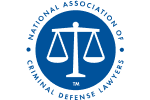Defense Lawyers
Substance Abuse Treatment and Mental Health
Modern society presents more opportunity for substance abuse than ever before. Psychoactive substances traditionally available include alcohol, opiates (pain killers), heroin, cocaine, methamphetamine, benzodiazepine (Xanax), and marijuana. Modern synthetic compounds such as ecstasy, spice K2, GHB, bath salts, synthetic drugs and home made meth labs have dangerous and deadly consequences. These chemical analogues are constantly being reformulated in an attempt to stay one step ahead of the law. They are substantially similar to controlled substances outlawed by federal and state drug schedules. Often people remain addicted to the very drugs originally prescribed to help them deal with addiction in the first place, such as suboxone, subutex and methadone.
The First Step
The first step is to ask for help. When you become honest with yourself, you may find that you do not drink because you have problems; you have problems because you drink. Alcohol makes all problems worse. Does booze cure the pain? Or, does booze cause and magnify the pain. Gulfport defense lawyer Al Jordan defends people charged with serious crimes. Sometimes a defense includes treatment of the underlying cause of the problems. Our goal is to leave you better than we found you.
The connection between drug/alcohol abuse, chemical dependancy, and the criminal justice system is well documented. Judges, district attorneys and other prosecutors know that more than 80% of felony charges are alcohol or drug related. The best Mississippi criminal defense attorneys deal with the client’s substance abuse issues that led to the arrest. We partner with licensed mental health professionals and recognized treatment facilities in appropriate situations. The questions presented below are a good place to start in evaluating a person’s substance abuse and chemical dependancy issues. The following questions have been adapted from the Diagnostic and Statistical Manual (DSM) of Mental Disorders. They are presented as a reality check for defendants and their families in determining whether the defendant has a substance abuse or chemical dependancy issue and whether treatment may benefit.
Some Questions Regarding Substance Abuse
- Do you spend a lot of time drinking or doing drugs? Do you have hangovers or feel sick the next morning?
- Do you crave alcohol or drugs so much that you can’t think of anything else?
- Does your alcohol or drug use hinder caring for home and family? Does it make your job or school more difficult?
- Do you keep using alcohol or drugs knowing it interferes with important relationships such as friends, family or spouse?
- Have you reduced or discontinued activities you used to consider important so you could drink alcohol or use drugs?
- Has your drug or alcohol use endangered the safety of you or others? Some examples include impaired driving, sharing needles, or having unsafe sex.
- Have you experienced a memory blackout after drinking or drugging – a memory loss occurring under the influence? Have you been told you did something during a blackout you would not ordinarily do? Examples include inappropriate conversations, having unprotected sex, driving impaired or gambling.
- Does your alcohol or drug use cause health problems, cirrhosis of the liver, and/or mental health issues such as anxiety, depression or memory loss?
- Do you increasingly have to ingest more alcohol or drugs to achieve the same effect you used to have? Do you find that the amount you used to consume now has less effect?
- When the effects of alcohol or drugs diminish, do you experience withdrawal such as difficulty sleeping or waking, restlessness, shakiness, nausea, sweating, rapid heart beat, or seizures? Have you heard or seen things that were not present (hallucinations)?
- Has your drug use (including alcohol) led to legal problems that harm your family relationships (such as domestic violence), your job (such as DUI) or your freedom (any felony)?
Treatment Options
If someone’s life has become unmanageable due to substance abuse/chemical dependancy, treatment may be the answer. Treatment offers the best alternative for interrupting the substance abuse/criminal justice cycle for people with drug or alcohol problems. Many times the first step is a substance abuse and chemical dependancy assessment by a trained professional.
If indicated, the treatment plan may include detox, drug testing, early intervention, outpatient treatment, or intensive outpatient treatment. Inpatient treatment can include partial hospitalization, full inpatient treatment, or medically managed inpatient treatment. After care can include AA meetings, NA meetings or other recovery groups such as Celebrate Recovery or Reformers Unanimous. Professional therapists can provide an individualized plan such as cognitive behavioral therapy, in which negative patterns of thoughts and feelings about self and environment are challenged in order to alter unwanted behavior patterns.
Mississippi has a broad spectrum of inpatient and outpatient rehabs, including 12 step and faith based approaches. Some are able to adjust the cost based on income. Mississippi’s Department of Mental Health serves each county through community mental health centers which provide alcohol and drug rehabilitation and treatment services. Drug Courts take a collaborative problem solving approach, combining treatment, rehabilitation, and accountability, with the goal of ending criminal activity. Long term therapeutic alcohol and drug treatment is also available while serving a sentence in the Mississippi Department of Corrections. Gulfport defense lawyer Al Jordan has referred many clients to substance abuse or mental health treatment, and drug court where appropriate. For example, a diagnostic assessment for substance abuse and chemical dependency can result in treatment recommendations that can improve the defendant’s case and life overall.
Mental Illness and Substance Abuse
Defense of a mentally ill client is complicated by substance abuse. The best Mississippi criminal defense lawyers will add a qualified mental health professional to the defense team either for treatment or to assist in the investigation. Recovery begins with treating the addiction and the mental health problems. The probability that mentally ill patients will engage in criminal or violent behavior depends on the severity of mental illness and is increased by their use of psychoactive substances. Where appropriate, dual diagnosis treatment combines treatment for mental illness and substance abuse disorders. Cognitive behavioral treatment addressing criminal thinking, anger or impulse control, and other pertinent behavioral issues can lower crime rates among those with mental illness.
Impulse Control Disorder
People with impulse control disorders have difficulty resisting impulsive acts that may harm themselves or others. These impulsive behaviors can include uncontrolled violence directed at domestic partners and others, inappropriate sexual behavior, arson, and stealing. For example, where some people may argue, someone with an anger or impulse control disorder may react with aggression out of proportion to the circumstances. They may fly into a rage resulting in injury or serious property damage and legal consequences. Drinking and drugs can aggravate impulsive behavior. Substance abuse can significantly magnify violent behaviors resulting in criminal charges.
Bipolar Disorder
Bipolar disorder, formerly known as manic-depressive illness, is a disorder of the brain exhibiting as severe shifts in mood, energy, activity levels and ability to conduct daily activity. Manic phase can include at least one week of elevated, expansive or irritable mood, talkativeness, racing thoughts, inflated self-esteem or grandiose behavior, decreased sleep, extreme distractibility or engaging in risky behavior. Depressive symptoms can include extreme feelings of sadness, despondency or pessimism. During the manic phase of bipolar a person may engage in risky behavior such as unprotected sex, drunk driving, shoplifting, or spending excessive amounts of money shopping or gambling. While in a depressive bipolar phase, the person may not be able to perform usual activities such as work, childcare, or personal hygiene. There is also a real risk of suicide during a depressive phase.
Persons with untreated bipolar disorder may try to self medicate, for example, using large quantities of alcohol to sleep after a severe manic episode. Using alcohol or street drugs can lead to a felony arrest. The resulting legal problems can complicate correct diagnosis and treatment.
It is impossible to list every mental disorder and complication from drug abuse. Substance abuse can significantly magnify violent behaviors in people with mental illness. Voluntary intoxication is not a legal defense to a criminal charge. Consuming illegal drugs complicates the defense of a person with mental illness.
Call Today
If you or a loved one has been arrested because of substance abuse or chemical dependency, help is available. Military veterans may present special challenges in addressing substance abuse secondary to their service connected injuries. People with a mental disorder and a drug problem may need dual diagnosis and treatment to prepare for court. Contact Albert R. Jordan IV of Healy & Jordan, PLLC, 1323 28th Ave #A, Gulfport, MS, 39501, telephone 228.863.0123.







